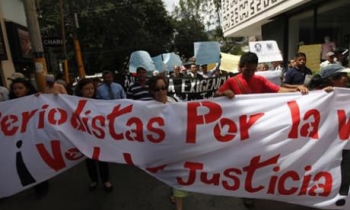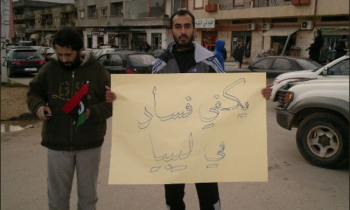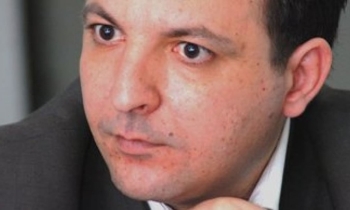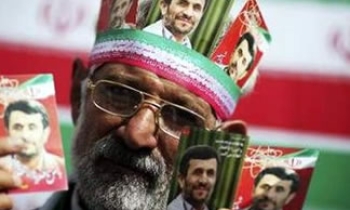The Centre, under severe criticism for its plans to regulate the electronic media in the country, has allayed fears over the contents of the proposed Broadcast Bill, and said that the government is committed to press freedom and that the legislation is meant to facilitate and develop the content of broadcasting in an orderly manner.

The Union minister for information and broadcasting, Priya Ranjan Dasmunshi, has dubbed as "not factually correct" reports alleging that the government planned to muzzle the media through the Broadcasting Bill. Dasmunshi, in a statement, said that nothing at any point of time would be done by the Congress-led United Progressive Alliance (UPA) government to encroach upon the fundamental rights of the media.
"I have seen news item expressing concern over the proposed broadcasting bill in a section of the print media. Some of these reports are not factually correct though I would not characterise them as misleading. I reassure the nation, the commitment of the government for the freedom of the press," the minister said.
Contending that the reports were "missing the wood for the trees", Dasmunshi said "when the bill as a whole is discussed in the Cabinet and placed before the Parliament the truth and the transparency of the government will be known to the people." He, however, argued that media should be the last sector to have a monopoly. "No vibrant democracy can allow accumulation of interest in print, radio and TV broadcast segment. We have to ensure diversity of news and views," he said.
Such a system of cross-media ownership restrictions is followed by all major democracies in the world such as the US, the UK, Australia, France, Germany, South Korea, he said. "I can understand the concerns of certain sections of media on provisions of cross-media ownership restrictions. However, these will be deliberated in the Cabinet and discussed and debated in Parliament."
The Leader of the Opposition LK Advani condemned the UPA government for having conceived such a legislation to gag the media. "It reminds me of the Emergency days when the worst-hit was freedom of the press, which is considered to be the fourth pillar of democracy. Our hunch is that the ruling party is in a bad shape and so its anger is first directed against the media. We will oppose it tooth and nail," he said.

The draft bill, which is being circulated across ministries before putting it up for Cabinet approval, intends handing over sweeping powers to the Union government which can take over control and management of private broadcasting channels in case of war or a natural calamity of national magnitude if the draft legislation becomes law.
"In the event of war or a natural calamity of national magnitude, the Central Government may, in public interest, take over the control and management of any of the broadcasting services or any facility connected therewith, suspend its operation or entrust the public service broadcaster to manage it, in the manner directed by the Government for such period as it deems fit," the draft bill states.
The Broadcasting Services Regulation Bill, 2006, to regulate private broadcasting also provides for punishment like revocation of licence and fines on those who violate the proposed broadcast guidelines, including the new Content Code under preparation. The Bill provides that the government may at any time direct the licensing authority (Broadcasting Regulatory Authority of India) to suspend or revoke a broadcasting service's licence, if the service is "considered prejudicial to friendly relations with a foreign country, public order, communal harmony or security of the state."
It provides for the setting up of a Broadcasting Regulatory Authority of India (BRAI), which apart from a Chairperson and six whole-time members, would have a government official, not less than the rank of Additional Secretary, as its CEO/secretary.
Every authorised BRAI officer shall have the power to prohibit any service provider from transmitting or re-transmitting any programme or channel, "if it is not in conformity with the prescribed content code, or if it is likely to promote feelings of disharmony or of enmity, hatred or ill-will between religious, racial, linguistic or regional groups or castes or communities or which is likely to disturb public tranquility." According to the draft Bill, the government will have the power to make rules from time to time.

Moreover, every authorised BRAI officer shall have the powers to inspect, search, seize equipment under Section 24 and prosecute on a written complaint by the concerned licensing authority, according to the draft Bill which has proposed setting up of a broadcast regulator, which would issue licences to cable operators and MSOs.
The draft of the content regulation, prepared by a sub-panel of a 30-member committee overseen by I&B secretary SK Arora, according to Indiantelevision.com, hints at stringent content regulation, particularly for news channels. If okayed by lawmakers in its present state, it would be the end of sting operations and coverage of issues where high-profile politicians and personalities are involved. An excerpt: "TV channels must not use material relating to a person's personal or private affairs or which invades an individual's privacy unless there is an identifiable public interest reason for the material to be broadcast."
Apart from empowering government officials of the ranks of district magistrate, sub-divisional magistrate or police commissioner to barge into newsrooms are seize equipment, Section 37 makes it clear that the officials' action cannot be challenged even in court. "No civil court shall have the jurisdiction to entertain any suit or proceedings in respect of any matter which the Authority or the Licensing Authority is empowered by or under this Act to determine," the draft Bill says.









